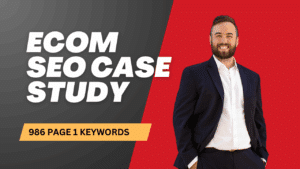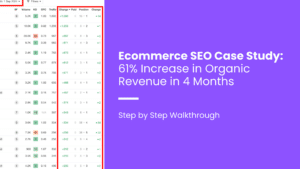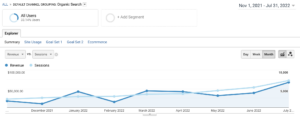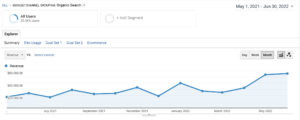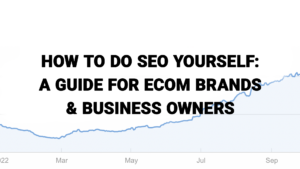When it comes to SEO, Ecom and DTC brands face a time of uncertainty. With the introduction of ChatGPT and other AI Search and GEO platforms, brand owners and marketers have been left with more questions than answers when it comes to how to balance their investment into SEO with AI Search.
Getting this balance wrong means losing out on valuable traditional search traffic and being late to the party with AI Search.
Here are the facts.
Traditional SEO is still the dominant traffic driver when it comes to organic traffic. The data many marketers have pulled in 2025 shows Google Search still sends 400x more traffic than ChatGPT.
AI Search does have some compelling components to it though. Thanks to higher traffic intent for searchers that do click-thru from AI search to your website, traffic from ChatGPT converts 5x more often than traffic from Google.
Today’s Ecommerce SEO Landscape
The days of “10 blue links” are well behind us. Today’s Ecom and DTC brands have to compete for a range of organic and paid real estate on Google Search.
From the traditional blue links to organic and paid shopping feeds, video and image carousels, and more, earning a click on Google has become more difficult, but not impossible.
Today’s reality is that you need to be competing across multiple SERP features on Google in order to maintain the amount of traffic you’ve earned in years past. The good news, is that there is still plenty of traffic to win from Google and it still converts at a rate that is profitable to brand owners.
How AI Search Fundamentally Differs
On Google, searchers tend to use anywhere from one to three or five words to find what they need. For Ecom and DTC brands, they might literally just type in “leather bags” to begin their shopping journey.
That is not the case when it comes to ChatGPT and AI Search.
Instead of a few words, users on ChatGPT using longer prompts to having a conversation to find what they are looking for. And in many cases these conversations can have multiple back and forths before they find what they are looking for.
Imagine you see a character on a show wearing an interesting piece of clothing. You then go to ChatGPT and ask it to help you figure out what that piece of clothing is. After going back and forth a bit, ChatGPT finally helps you land on the exact piece the actress was wearing and then offers you a few brands that sell the product.
This is a completely different experience from traditional Google Search.
How ChatGPT and AI Search Gathers Data
Because there are so many people claiming to be able to influence ChatGPT, it’s essential for brands to have a baseline grasp of how ChatGPT and AI Search finds and provides a response to users.
The AI Model in use in most cases has been trained on a predetermined set of data. This data is fixed in time until the platform updates its data set. In some instances, the AI platform will search the web for citations to help provide a response. This is an important note because this is the only data the AI model can freshly grab to provide an answer to a user.
What Ecommerce Brands Can and Cannot Influence on ChatGPT
As with any type of search platform, marketers are already looking for ways to manipulate ChatGPT and AI Search Platforms. It’s important to understand what can and cannot be influenced so you aren’t fooled by someone who doesn’t know what they are doing.
What you cannot influence:
- Historical training data already incorporated
- User prompts and conversation paths
- AI’s internal reasoning processes
What you can influence:
- Web citations through SEO, PR & content
- Brand mentions in authoritative content
- Future training data through digital presence
- Product structured data accessibility
What to do moving forward
While there is a lot to process with ChatGPT and AI Search, for now the good news is that a majority of what ChatGPT uses to produce a response is influenced by traditional SEO tactics.
Backlinks, an optimized website, and relevant content are all essential in providing data to ChatGPT so it can reference your brand when appropriate.
As the AI Search space matures, we will without question get more insights into how we can influence those results and also get better tools to track and report on its performance.
For the next few years, brands need to continue investing in SEO while also setting budget aside for AI-specific efforts.
If you need help with bridging your SEO and AI Search efforts, send me an email at noah@workwithnoah.com or book a call from the homepage.

